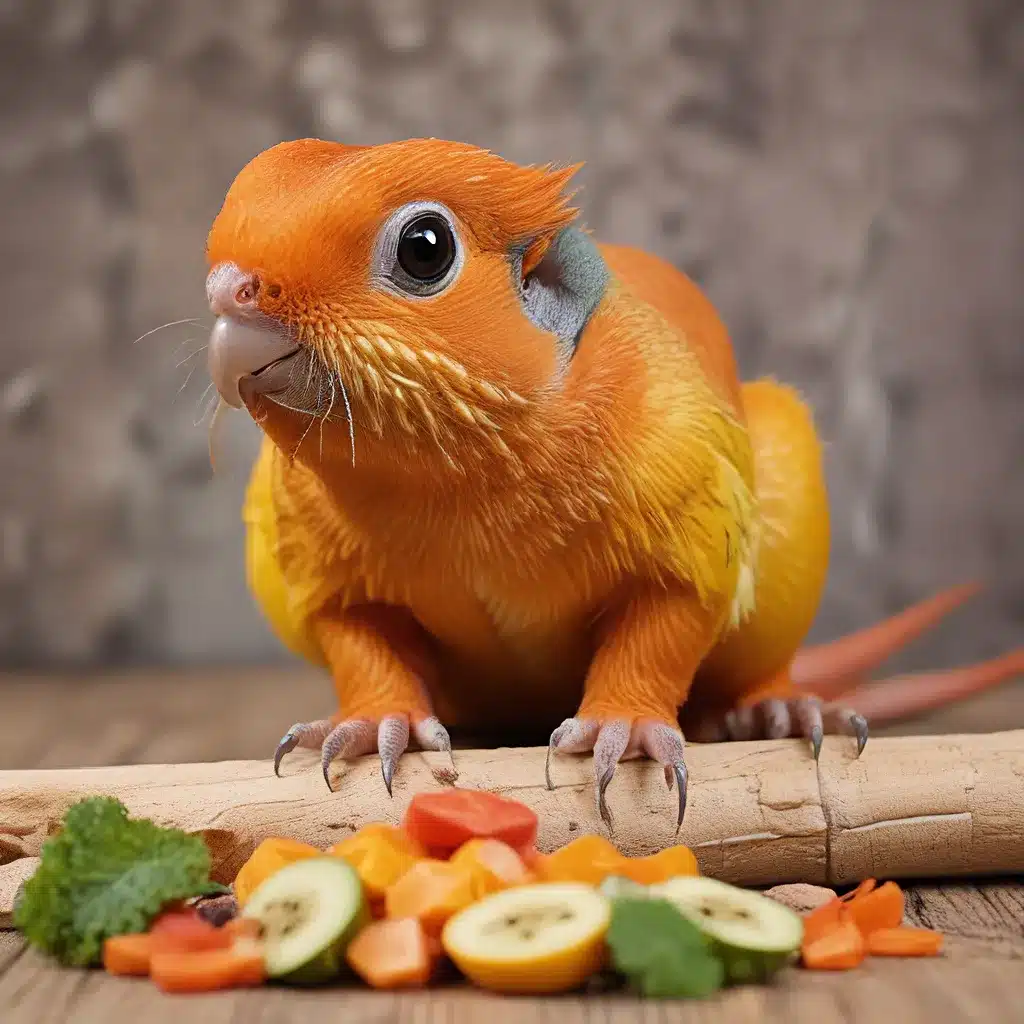
Unleashing the Secrets of Exotic Pet Nutrition
Ah, the joys of exotic pet ownership! From scaly lizards to feathered friends, these fascinating creatures capture our hearts and imaginations. But as any seasoned exotic pet parent will tell you, their dietary needs are far from ordinary. In the whirlwind of caring for our unique companions, one vital aspect often takes center stage – nutrition.
Ensuring your exotic pet’s dietary needs are met is the key to unlocking their full potential. It’s a delicate balancing act, where one misstep can lead to a cascade of health issues. But fear not, my fellow exotic enthusiasts! Today, we’re diving deep into the world of exotic pet nutrition, uncovering the secrets to keeping your furry, scaly, or feathered friend thriving.
Understanding the Nuances of Exotic Pet Diets
Each exotic species has its own set of nutritional requirements, shaped by millions of years of evolutionary adaptation. What may be a nutritious feast for one creature could prove disastrous for another. The first step in mastering exotic pet nutrition is to understand the unique dietary needs of your specific pet.
As the Appleton, WI veterinarians at Animal Med Center point out, “Nutritional requirements can vary based on species, age, health status, and other factors. Remember, they can’t tell us what’s wrong, so if you think they’re not acting right, please book an appointment with your nearest vet to avoid serious health risks.”
Exotic pets come in all shapes and sizes, each with their own set of culinary preferences and dietary needs. For instance, a sugar glider’s diet may consist of a delicate balance of fruits, insects, and nectar, while a bearded dragon thrives on a varied menu of leafy greens, vegetables, and the occasional protein-packed cricket. Failing to cater to these specific requirements can lead to a host of health concerns, from nutritional deficiencies to digestive distress.
Embracing the Raw Feeding Movement
In recent years, the raw feeding movement has gained significant traction within the exotic pet community. Proponents of this approach believe that by mimicking the natural diets of these animals, we can provide them with the optimum nutrition they crave.
Halshan Raw Food, a leading provider of raw pet nutrition, highlights the numerous benefits of this approach: “Raw feeding is celebrated for its numerous health benefits, including improved digestion, shinier coats, healthier skin, reduced allergy symptoms, and better weight management.”
By incorporating a variety of raw meats, organs, and even exotic proteins like rabbit or venison, raw diets aim to closely replicate the nutrient-dense meals our exotic pets would consume in the wild. This holistic approach not only satisfies their instinctive dietary needs but also promotes overall well-being.
Striking the Balance: Macronutrients and Micronutrients
Maintaining a healthy exotic pet requires more than just providing a diverse menu. It’s also crucial to ensure the proper balance of macronutrients (protein, fat, and carbohydrates) and micronutrients (vitamins and minerals) in their diet.
Mazuri’s Mini Pig Active Adult formula, for example, is formulated to provide “complete nutrition – no vitamin or mineral supplements necessary.” This includes a balanced blend of essential amino acids, probiotics, and trace minerals to support healthy growth, skin, and even odor control.
Striking the right balance is a delicate dance, as each exotic species has unique nutritional demands. Overemphasizing one macronutrient or neglecting a crucial micronutrient can have dire consequences, leading to conditions like metabolic bone disease, liver dysfunction, or even premature aging.
Tailoring Nutrition to Life Stages and Health Needs
Just like humans, exotic pets have different nutritional needs at various stages of their lives. A young, growing sugar glider has vastly different dietary requirements than a senior bearded dragon. Failing to account for these changes can have serious repercussions.
Golden Exotic Pets, a leading authority on exotic animal care, emphasizes the importance of tailoring nutrition to each pet’s life stage and health status. “Whether your exotic pet is a youngster or a seasoned senior, their dietary needs are constantly evolving. Paying close attention to their individual requirements is essential for maintaining optimal health and vitality.”
For instance, a pregnant or lactating female may require a higher protein intake to support her offspring, while an older reptile may benefit from a diet rich in antioxidants to combat the effects of aging. Staying attuned to these nuances is the key to ensuring your exotic companion thrives at every stage of their life.
Navigating the Minefield of Dietary Supplements
In the world of exotic pet care, dietary supplements have become a contentious topic. While they can be valuable tools in addressing specific nutritional deficiencies, the wrong supplements or improper dosing can be downright dangerous.
“Nutritional requirements can vary based on species, age, health status, and other factors,” cautions the team at Animal Med Center. “Always consult with a veterinarian to tailor your pet’s nutrition to their individual needs.”
Before introducing any supplementation, it’s crucial to work closely with your exotic pet’s veterinarian. They can help you identify any specific nutritional gaps and prescribe the appropriate supplements to address them. Blindly adding random vitamins or minerals can do more harm than good, potentially leading to toxicity or imbalances that undermine your pet’s overall health.
Embracing the Joys of Exotic Pet Nutrition
Navigating the intricacies of exotic pet nutrition may seem daunting, but with the right knowledge and a little bit of patience, it can be a truly rewarding experience. By understanding the unique dietary needs of your feathered, furry, or scaly companion, you’re not only ensuring their physical well-being but also forging a deeper bond through the shared joy of mealtime.
So, let’s raise a glass (of fresh, clean water, of course) to the art of exotic pet nutrition. With a little bit of research, a dash of creativity, and a whole lot of love, you can unlock the secrets to keeping your beloved exotic pet happy, healthy, and thriving for years to come.

